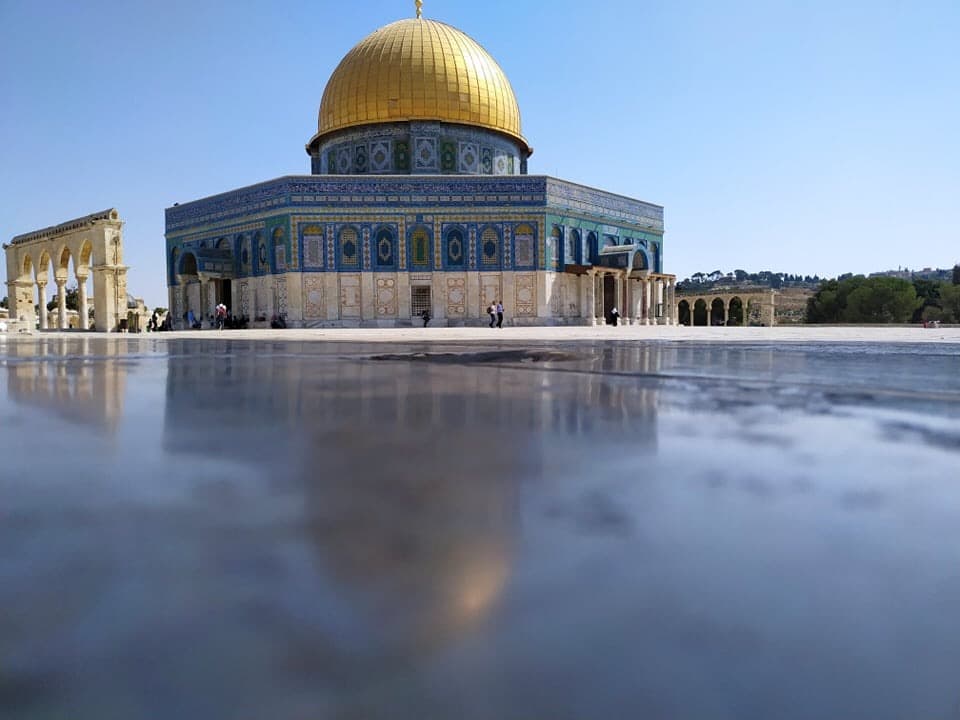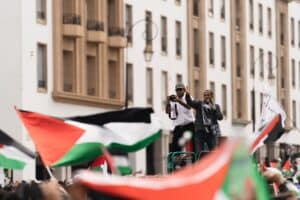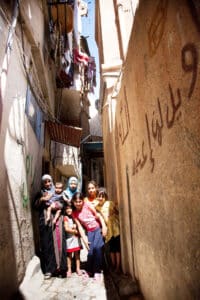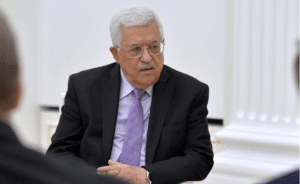The Dome of the Rock at the Al-Aqsa Mosque, Jerusalem (WikiMedia Commons)
After a weekend of violence around the Al-Aqsa Mosque, fears rise that violence between Israeli and Palestinian forces will escalate across the region. On Monday, Israel intercepted a rocket launched by Hamas, after which it conducted an air raid on a alleged weapon manufacturing compound in Gaza. This year, the Muslim holy month of Ramadan coincides with the Jewish festival Passover and Christian Easter, causing tensions to be extremely high between Israel and the Palestinian Territories.
Tensions in Jerusalem
Last weekend, hundreds have been wounded in various incidents in and around the Al-Aqsa Mosque in Jerusalem. It is Islam’s third-holiest place and the holiest place in Judaism – known as Temple Mount. Jews are allowed to visit but may not pray at the site. However, early on Sunday 17 April, Jewish worshippers were seen at the site, protected by Israeli security forces. It caused various clashes between various religious groups at the site. Israeli police said its forces entered the al-Aqsa mosque to “re-establish order”, sparking a major backlash from Arab political actors.
Israel’s fragile coalition is now endangered as the Arab-Israeli party Raam said it will resign “if the government continues its steps against the people of Jerusalem”. Ismail Haniyeh, the chief of Hamas, said that “our people have the right to access it and pray in it, and we will not bow down to Israeli repression and terror.” The Turkish President Erdogan said he would contact all sides to “end the escalation”, after a call with Palestinian President Abbas. Jordan and Egyptian political leaders also called upon Israel to end repression and violence in the vicinity of the Al-Aqsa Mosque.
De-escalation
It is crucial that the international community accommodates a process of de-escalation between Israeli and Palestinian actors. Earlier this month, various terrorist attacks in Israel killed fourteen people. In the West Bank, dozens of Palestinians were killed by Israeli security forces after raids on Palestinian homes which were allegedly related to the terrorist attacks. As a study by Euro-Med human rights monitor found, no restrictions on the use of force are currently in place for the Israeli security forces, that use excessive violence against the Palestinian population. As seen before, violence during Ramadan can quickly spiral into a major conflict between Hamas and Israel. In May 2021, Israel and Hamas fought a brief eleven-day war in which 275 Palestinians and 9 Israelis were killed.
The decades-long occupation, diplomacy of Arab regimes with Israel and weakness of Abbas’ presidency angered many Palestinians, and more violence could be imminent. While both Israel and Hamas do not seem to be interested in escalation – still recovering from last year’s conflict – events in the West Bank and Jerusalem could still spur possible conflict. For the time to come, the tensions will likely remain very high.
Sources: Al Jazeera I Al Jazeera II France24 The Guardian Reuters
Photo: WikiMedia Commons



